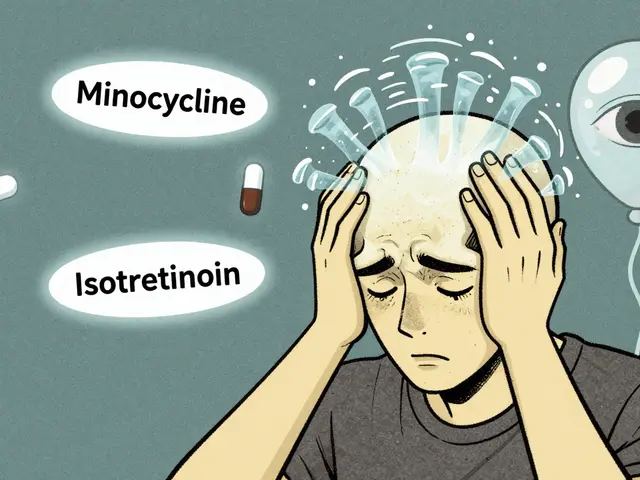Pituitary Tumor: Causes, Symptoms, and What You Need to Know
When something goes wrong with the pituitary gland, a pea-sized gland at the base of your brain that controls most of your body’s hormones. Also known as the master gland, it tells your thyroid, adrenal glands, ovaries, and testes when to release hormones—so when it misfires, your whole system feels it. A pituitary tumor, a noncancerous growth that develops in the pituitary gland. These are often called pituitary adenomas, and while they don’t spread like cancer, they can still cause big problems by squeezing nearby nerves or flooding your body with too much—or too little—of certain hormones.
Not all pituitary tumors cause symptoms. Some are found by accident during scans for other issues. But when they do cause trouble, it’s usually because of hormone changes or pressure on the optic nerve. A prolactinoma, the most common type of pituitary tumor, overproduces prolactin. In women, that can mean irregular periods, milk production when not pregnant, or trouble getting pregnant. In men, it often leads to low sex drive, erectile dysfunction, or breast growth. Other tumors might push out too much cortisol (causing weight gain and high blood pressure), growth hormone (leading to enlarged hands and feet), or too little thyroid hormone (making you tired and cold all the time). Headaches and vision changes—like trouble seeing to the sides—are common signs the tumor is pressing on nerves around the gland.
What causes these tumors? No one knows for sure. They’re not linked to lifestyle, stress, or diet. Most happen randomly, with no family history. But if you’ve got one, your doctor will check hormone levels, do an MRI, and possibly test your vision. Treatment isn’t always surgery. Some tumors shrink with pills—like dopamine agonists for prolactinomas. Others need radiation or removal if they’re growing fast or threatening your sight. The goal isn’t always to erase the tumor, but to bring your hormones back into balance and stop it from getting worse.
Below, you’ll find real, practical guides on how these tumors interact with medications, how they affect other systems like the thyroid and metabolism, and what to watch for if you’re managing one long-term. No fluff. Just what works—and what doesn’t—based on actual patient experiences and medical evidence.

- Nov 17, 2025
- Posted by Cillian Osterfield
Acromegaly: Understanding Excess Growth Hormone and Modern Treatment Options
Acromegaly is a rare hormonal disorder caused by excess growth hormone, leading to physical changes and serious health risks. Learn how it's diagnosed, treated with surgery, medication, or radiation, and why early intervention saves lives.
Categories
- Health and Wellness (72)
- Medications (69)
- Health and Medicine (28)
- Pharmacy Services (12)
- Mental Health (9)
- Health and Career (2)
- Medical Research (2)
- Business and Finance (2)
- Health Information (2)
Latest Posts
©2026 heydoctor.su. All rights reserved





